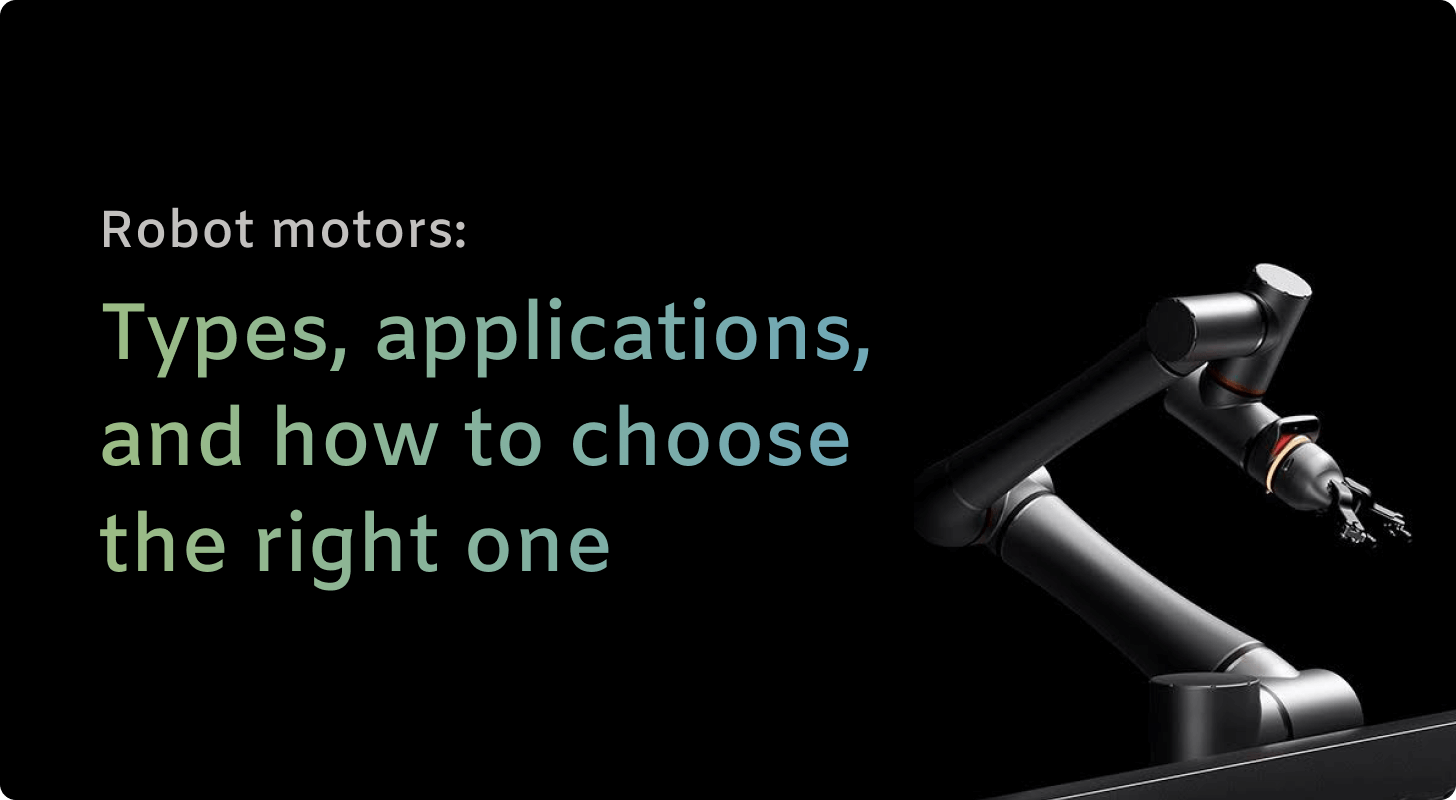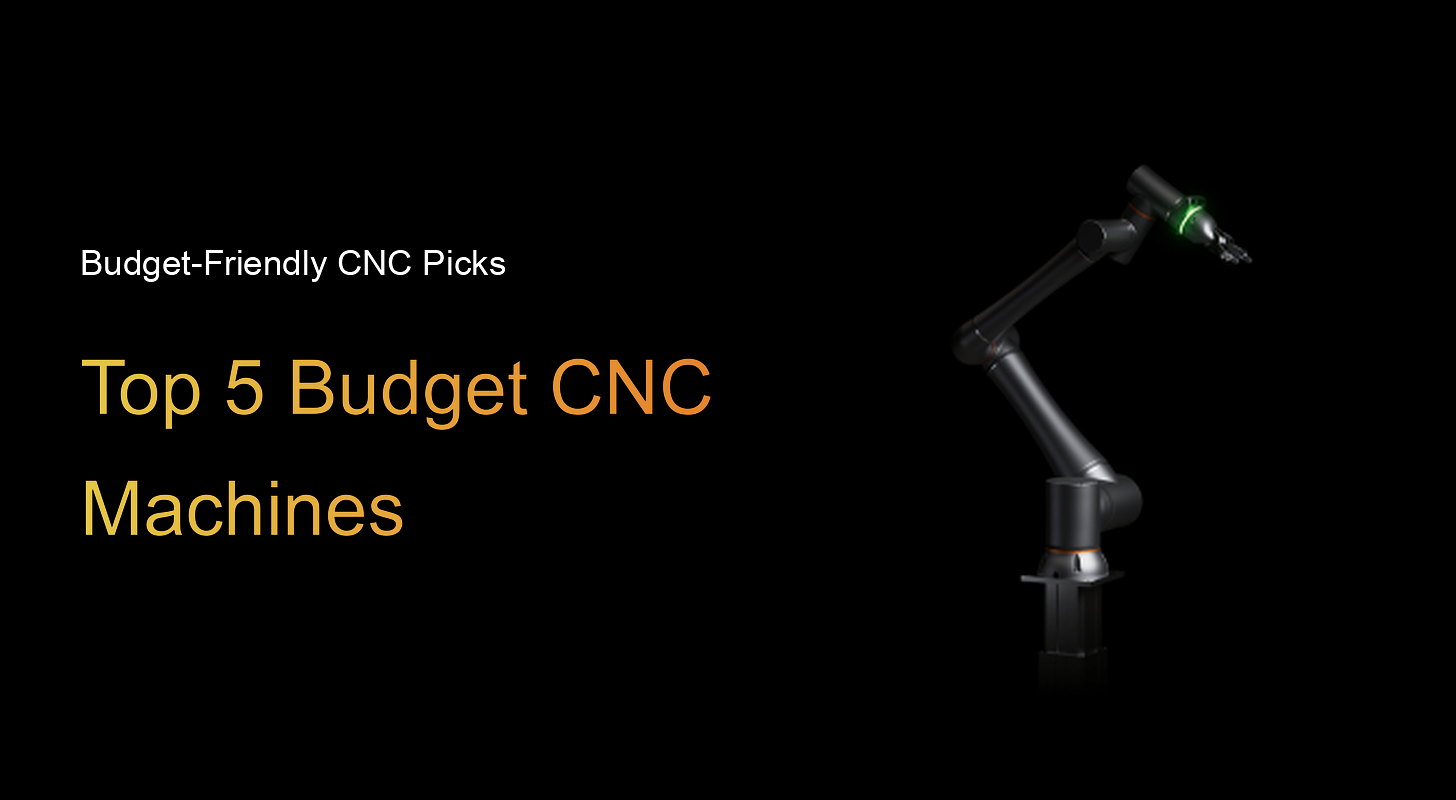Are you trying to decide which industrial robot is best for your business?
KUKA offers flexibility, ABB stands out for user-friendliness, and FANUC excels in speed — but Standard Bots offers an alternative with its AI-powered automation, costing from $5/hour.
This guide will help you find the ideal solution for your specific needs.
Read on to learn:
- KUKA vs. ABB vs. FANU vs. Standard Bots: an overview
- Key differences: a head-to-head comparison
- Pros and cons of each robot brand
- Decision framework for choosing the best robotics solution
Let’s start with a brief overview.
KUKA vs. ABB vs. FANUC vs. Standard Bots: Quick overview
Before we throw these robots into the ring, let's get to know them a little better:
KUKA
KUKA, hailing from Germany, has a long and impressive track record in robotics, from the first industrial robots to the latest collaborative ones (cobots). They're OGs.
Pros:
- Flexibility as a philosophy: There’s a KUKA robot ready-made for pretty much everything. They can handle a dizzying variety of jobs, from welding and painting to delicate surgical procedures.
- They're friendly: KUKA's cobots are designed to work safely alongside humans — no need to worry about them going all Terminator on you.
- Software that doesn't suck: KUKA's robots have advanced software with many pretty user-friendly features (although it does require specialized training to master).
- Safe and sound: KUKA takes safety seriously. Their robots come with all sorts of fancy features like collision detection and force control to keep everyone nice and snug while they work.
Cons:
- Prices that will have you do a double-take: KUKA robots can be a bit of an investment upfront. They're not exactly pocket change.
- Complexity: While KUKA's software is pretty awesome, it can also be more complex than it might seem. You might need to put on your thinking cap and do some training to master it.
- Compatibility: KUKA robots can be a bit picky about who they play with. They might not be compatible with all third-party systems and components.
The bottom line on KUKA:
KUKA robots are perfect if you're looking for a jack-of-all-trades that can handle those tricky, intricate tasks and work side-by-side with your human team — a key for high-precision industries like the automobile game.
ABB
ABB is a global leader in robotics and automation, known for its user-friendly solutions and commitment to innovation. Their robots are big, burly, and relatively easy to use.
Pros:
- Comparatively easier to program: ABB's robots come with intuitive programming interfaces that make it easy to get started, even if you don't have a lot of robotics experience.
- Wherever you go, there they are: ABB has a strong presence in various industries, including automotive, electronics, food and beverage, and logistics. They have a huge commitment to sustainability and innovation, constantly pushing the boundaries of what's possible with robotics.
- Built to last: ABB robots have a reputation for having robust build quality and reliability, so you get minimal downtime and maximum productivity.
- Industry 4.0 all-stars: ABB robots are designed to play nicely with the latest industrial automation technologies, like the Internet of Things (IoT) and Artificial Intelligence (AI).
- Collaborative & adaptable: ABB offers a range of collaborative robots that can work safely alongside humans, as well as robots that can be easily adapted to different tasks and applications.
Cons:
- Only for the rich: While ABB offers a range of robots at different price points, some of their more specialized models can be major money sinks.
- Finicky: While ABB robots are generally easy to use, integrating them with certain legacy systems or non-standard components can sometimes be a bit more complex.
- Not always the fastest: ABB robots excel in user-friendly integration and flexibility, but they may not be the best choice for applications requiring the highest speed.
The bottom line on ABB:
ABB robots are a great choice for businesses that value ease of use, flexibility, and a strong focus on Industry 4.0 technologies. They're particularly great for industries like electronics, food and beverage, and logistics, where adaptability and user-friendliness are valuable.
FANUC
FANUC, a Japanese robotics pioneer, is a huge name due to its precision, reliability, and lightning-fast robots. They’re global leaders in automation — and that often comes with a price tag to match.
Pros:
- Super-fast: FANUC robots are designed for high-speed, high-precision tasks, making them ideal for high-volume manufacturing environments such as automotive and electronics.
- Precision and speed: FANUC robots have super-high accuracy and high-speed performance, making them ideal for tasks that require repeatability and efficiency.
- Built like tanks: FANUC robots have a robust build quality and reliability.
- Global support network: FANUC has an extensive global support network that provides assistance and expertise to customers worldwide.
- Very wide range of models: FANUC offers a diverse range of robots to suit various applications and industries, ensuring you can find the perfect fit for your needs.
- Easy integration: FANUC robots are meant to have a relatively pain-free integration with existing systems, making it easier to incorporate them into your production line.
Cons:
- There goes your wallet: FANUC robots, like KUKA, can be a bit of an investment upfront.
- Less flexible: While FANUC robots are great at high-speed, repetitive tasks, they might not be the most flexible option for complex or custom applications.
- Programming can be tricky: FANUC's proprietary programming language, TP (Teach Pendant), is powerful but can be complex and requires specialized training.
The bottom line on FANUC:
FANUC robots are a top choice for businesses that prioritize absolute speed, precision, and reliability in their automation processes. They're particularly meant for industries like automotive and electronics, where speed and precision are very welcome, but their prices may also be too steep.
Standard Bots: Shaking up the automation game
Standard Bots, a US-based company, is all about making automation accessible and affordable for everyone without losing critical performance metrics — all while leveraging the latest and greatest strides in AI.
Standard Bots currently offers RO1, a six-axis collaborative robot (cobot) designed to handle a huge variety of tasks easily. Whatever job you throw at it, RO1 can do.
Pros:
- Wallet-friendly: RO1 is significantly more affordable than traditional industrial robots, making automation a reality for even small businesses and startups. Think of it as the "budget-friendly Tesla" of the robot world.
- Easy peasy setup: You don't need a robotics degree to get started with the RO1. Its intuitive, no-code interface and visual programming tools make harnessing its capabilities very simple, even for non-technical users.
- Built to last: RO1 has a robust design and reliable performance. Its best-in-class payload, high repeatability, and compact frame make it a valuable add-on to any production line.
- AI smarts: RO1 isn't just a dumb machine; it's equipped with advanced AI capabilities that match GPT-4, allowing it to see its surroundings, learn from experience, and even perform complex tasks with precision.
- Extra safe: RO1 comes with a suite of safety features, including sensors, machine vision, and collision detection. Your team will stay safe.
- Adaptable and scalable: You can easily reprogram and redeploy RO1 to handle new jobs as your business grows and evolves. Your needs change, and so does RO1.
Cons:
- US-based: While this is fantastic if you’re in North America, Standard Bots is a newer market entrant and may not yet have an extensive global support network compared to more established brands like KUKA, ABB, or FANUC.
- Still new on the block: This may mean that Standard Bots may not have as large a robotics ecosystem as their competitors — although they’re working on growing their repertoire.
The bottom line on Standard Bots:
Standard Bots is redefining the automation landscape with its affordable, AI-powered robots like the RO1, designed for ease of use and scalability.
Unlike pricier competitors such as KUKA, ABB, and FANUC, Standard Bots makes automation accessible to businesses of all sizes with a user-friendly, no-code interface that requires no specialized training.
The RO1 combines robust design, high repeatability, and advanced safety features, such as collision detection, to handle a wide range of tasks efficiently. For companies seeking a cost-effective, adaptable automation solution without sacrificing performance, Standard Bots offers an unbeatable option.
KUKA vs. ABB vs. FANUC vs. Standard Bots: The final verdict
So, we've explored the strengths and weaknesses of each contender in the KUKA vs. FANUC vs ABB vs. Standard Bots battle royale. Now, let's figure out which one is the best fit for your specific needs.
Think about these:
- Application: What tasks do you need to automate? Are they simple, repetitive tasks or complex, multi-step processes? Do you need a robot that can work collaboratively with humans or one that can handle heavy payloads?
- Cost: What's your budget for automation? Are you looking for a cost-effective solution, or are you willing to invest in a bigger brand with the ensuing training and maintenance costs?
- Industry requirements: Does your industry have specific automation needs or regulations? Is there any other standard you need to meet?
The lowdown on ABB vs. KUKA vs FANUC vs. Standard Bots:
- KUKA: If you need a highly flexible robot that can handle complex tasks and work collaboratively with humans, KUKA is a great choice.
- ABB: If ease of use and a strong focus on Industry 4.0 technologies seal the deal, ABB is a solid option.
- FANUC: If speed, precision, and reliability are paramount, FANUC is the way to go, especially in very high-volume manufacturing environments.
- Standard Bots: If you're looking for an affordable, user-friendly, and AI-powered solution that can handle a wide range of jobs like nobody’s business, Standard Bots is the answer to your prayers.
Next steps
So, you've seen how KUKA, ABB, and FANUC stack up, but Standard Bots' RO1 is the real deal. It's affordable, user-friendly, and packed with AI smarts, making automation accessible to businesses of all sizes.
- Budget-friendly brilliance: RO1 is a fraction of the cost of traditional industrial robots, so you can automate without breaking the bank.
- No coding required: RO1's intuitive, no-code interface makes setup and programming a breeze.
- The full package: With a 1.3m reach, 18 kg payload capacity, and lightning-fast speed, RO1 is ready to tackle a wide range of tasks.
- Safety first: RO1's built-in safety features keep your team safe so you can focus on getting work done.
- AI-powered smarts: RO1's advanced AI capabilities let it see, learn, and adapt, making it the perfect automation partner for any business.
Reach out to our solutions team today for a risk-free 30-day trial. Integrate RO1 into your shop floor and get ready to experience the benefits of automation.
brighter future
Join thousands of creators
receiving our weekly articles.










